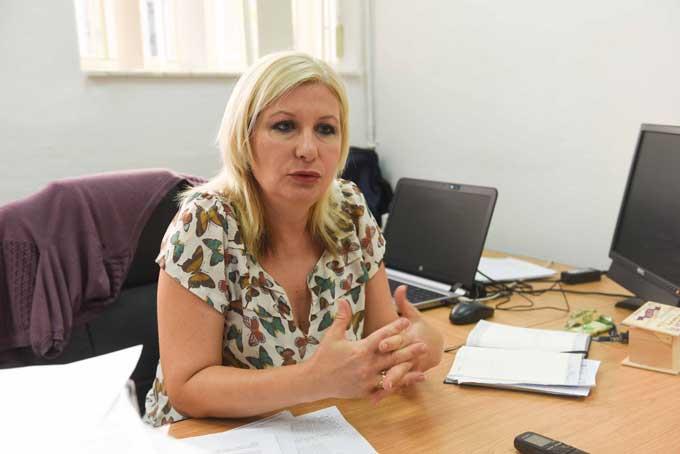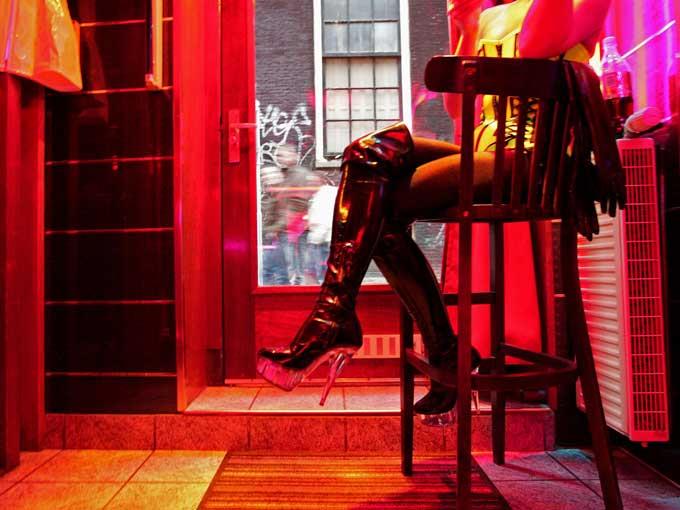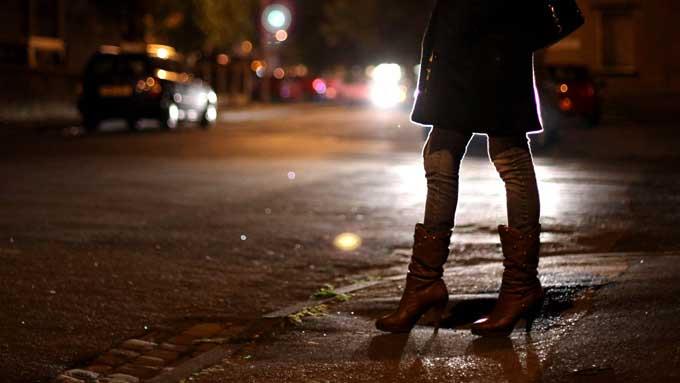"Prostitution is paid rape," Malta Confederation of Women's Organisations (MCWO) Chairwoman Lorraine Spiteri told Kevin Schembri Orland during an interview.
"Let's say a man approaches a female prostitute," she says. "The prostitute does not want the man to have sex with her, but needs the money desperately - either due to drug addiction, poverty, being forced into the business, etc. The only way she will have sex with the man, sex which she does not want, is by being paid. How can you legalise an activity that results in a person going through such serious physical and psychological damage?"
When it was pointed out that some people could argue that paying for the service, and from a business point of view, there is consent, this was denied. "No, she consented because she doesn't have a choice. She might not have the money, might not have the options, is a drug addict, has no home to go to, has no money, was abused and pushed into prostitution.
"Really and truly, the experiences of thousands of prostituted women are not happy ones. The only person to benefit is the person who pays for the service."
Spiteri mentioned that, according to statistics produced by the European Women's Lobby - the largest umbrella organisation of women's organisations in the EU - nine out of 10 women in prostitution would like to stop but feel unable to do so. "Even if one in 10 wants to prostitute herself of her own will, for society to acknowledge that right more than the circumstances of the other women would be damaging.
"We keep normalising sexual abuse, thinking prostitution is ok, when it is not: it is paid rape."

The MCWO has held its position against the regularisation of prostitution since 2013 when the issue of strip clubs first arose, said Spiteri. She said that, along with other NGOs, the MCWO sees prostitution as violence towards women.
"Prostitution in Malta is not illegal, but neither is it legal. It is a grey area, but seriously harms equality between women and men. In a society where we are trying to achieve equality, we cannot say we are achieving it when we try to give a rubberstamp to people who damage the circumstances of women in society.
"At the moment, we do not know what the draft law stays, but when you speak of the regularisation of prostitution, this means that a prostitute can continue with her work, while the pimps and brothels can also operate without any problems. This would result in the prostitute being the person who does not benefit, while the pimps, traffickers and those making the profit would be the ones to benefit - which would lead to further sexual abuse."
Told that regularisation might give people (women) working as prostitutes more rights to fight abuse, and could help push to get rid of the pimps, Spiteri said that research definitely shows that women who are being prostituted are not mainly there out of choice, but for any of a number of situations in which they find themselves. She again reiterated the probability of prostitutes having a drug problem, or of having had to start prostituting herself as a result of other circumstances and ending up taking drugs due to the mental impact of the situation. "Research shows child abuse is another factor that can lead to prostitution."

Currently, in Malta, she said, when a prostitute is taken to court she is penalised rather than being given the help she needs, for offences related to drug abuse or loitering for example. "The prostitute is being penalised more than the person who is making her participate in such an activity," she said, indicating a need to change the law.
"The MCWO is a signatory of the Brussels Call, where a number of organisations and MEPs met in Brussels, signing to push for the Nordic model which decriminalises prostitutes, but criminalises the buyer. "Doing just that would not change anything, however, and this must go hand in hand with support for these vulnerable women, including financial support and educational services as well as protection as it is not easy to leave certain circles."
She argued that the situation in Amsterdam and Berlin, where prostitution is legalised, the situation is not under control. "Who is in control? Is it the man who can go to a brothel and choose what kind of woman he wants from a menu, and what kind of act he would like her to perform? It's the woman who would then be constrained to stay under these conditions. The psychological impacts on these women are too damaging. This is not ok. Even if it seems the female prostitute is ok with it, she is not, and we are basing our arguments on research and on what women who were prostitutes in the past have said."

The damaging effect of prostitution on society is like the effect of incest on the family
Asked why these women don't just stop prostituting themselves, Spiteri replied: "Because they can't. There are no options for them. It is society that has to help with that. If you have a group of people in society that need help but have no voice, then society needs to speak up for them. Years ago, we used to think that if a man wanted to have sex with his wife, he had a right to do so. The law had not considered 'marital rape' but, over time, people became more aware. This is what happened in Sweden and France. Before their legislation (the 'Nordic model') was implemented, people thought it was ok to go with a prostitute. But later, through vox pops, it became apparent that public mentality had changed. The damaging effect of prostitution on society is like the damaging effect of incest on a family."
"Some people argue that there will always be prostitution and, yes, prostitution is still there but that doesn't mean that you should license it. People still commit theft and murders, but society has to show that it is wrong to do that to people."
Men who use prostitutes, said Spiteri, do not care if the prostitute is a mother, on drugs, sick - they just see her as an object. "It has an effect on the psyche of society and encourages the idea that women are there just as commodities, to be objectified. It is not ok to be a prostitute, or to use a prostitute."
When it was pointed out that regularisation can result in less underground money and that these funds can be brought above board, she said that one must study other countries. In Germany and Holland, where prostitution is regularised, "there is still a lot of underground money. Regularisation didn't help. What it did do was result in sex tourism, more people going to the country for the service, and increasing the income from taxation. I don't think we should exploit people engaged in prostitution to boost the economy. Malta is doing well economically. We have built a good reputation through the resources we have, and such a move would damage that reputation. It would be a sad day if we end up in a situation where we have this kind of tourism: filth attracts filth."

Turning to strip clubs, she said that areas where such clubs are located "are somehow a magnate for crime. The crime rate in Paceville has soared, as people go there for certain things."
The MCWO has been quite vocal about strip clubs in the past, and Spiteri believes that there is prostitution in the strip clubs. "There were instances reported in the press in the past, where it was reported that strippers were asked to perform certain acts."
Turning to support services, she said that some do exist, but more needs to be done. Female prostitutes should not end up in prison for such a reason as they are victims of circumstances, she said. A victim should receive help to overcome her drug addiction, to find a place to live, to be taught life skills, etc.